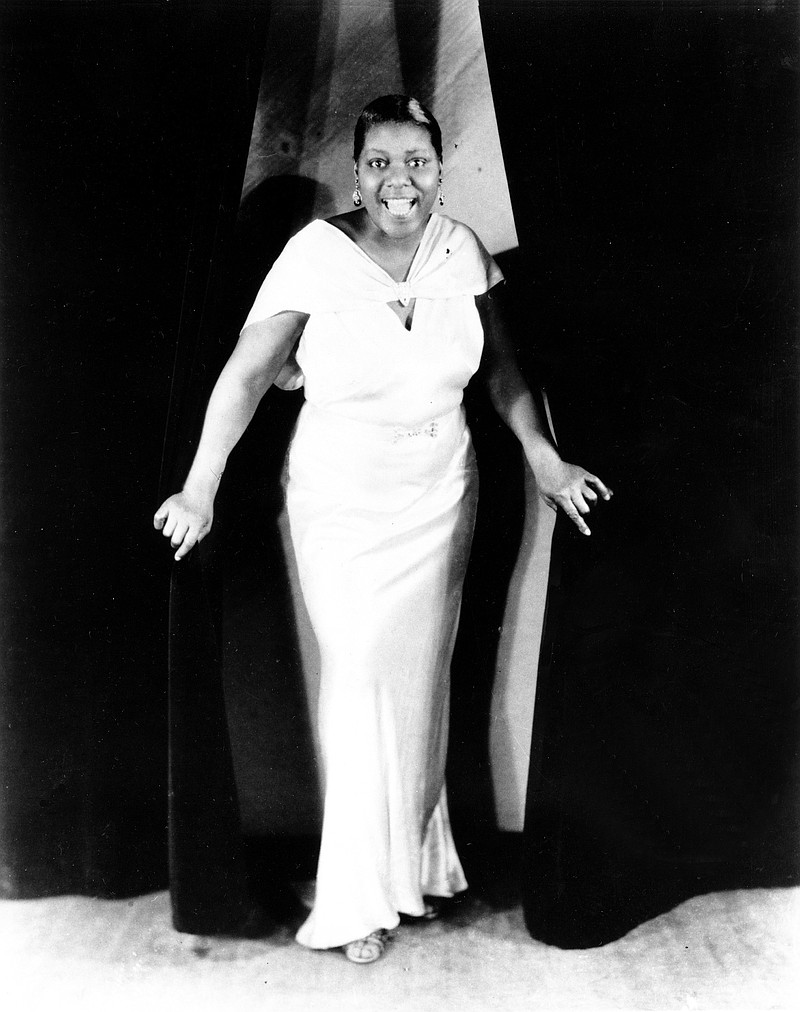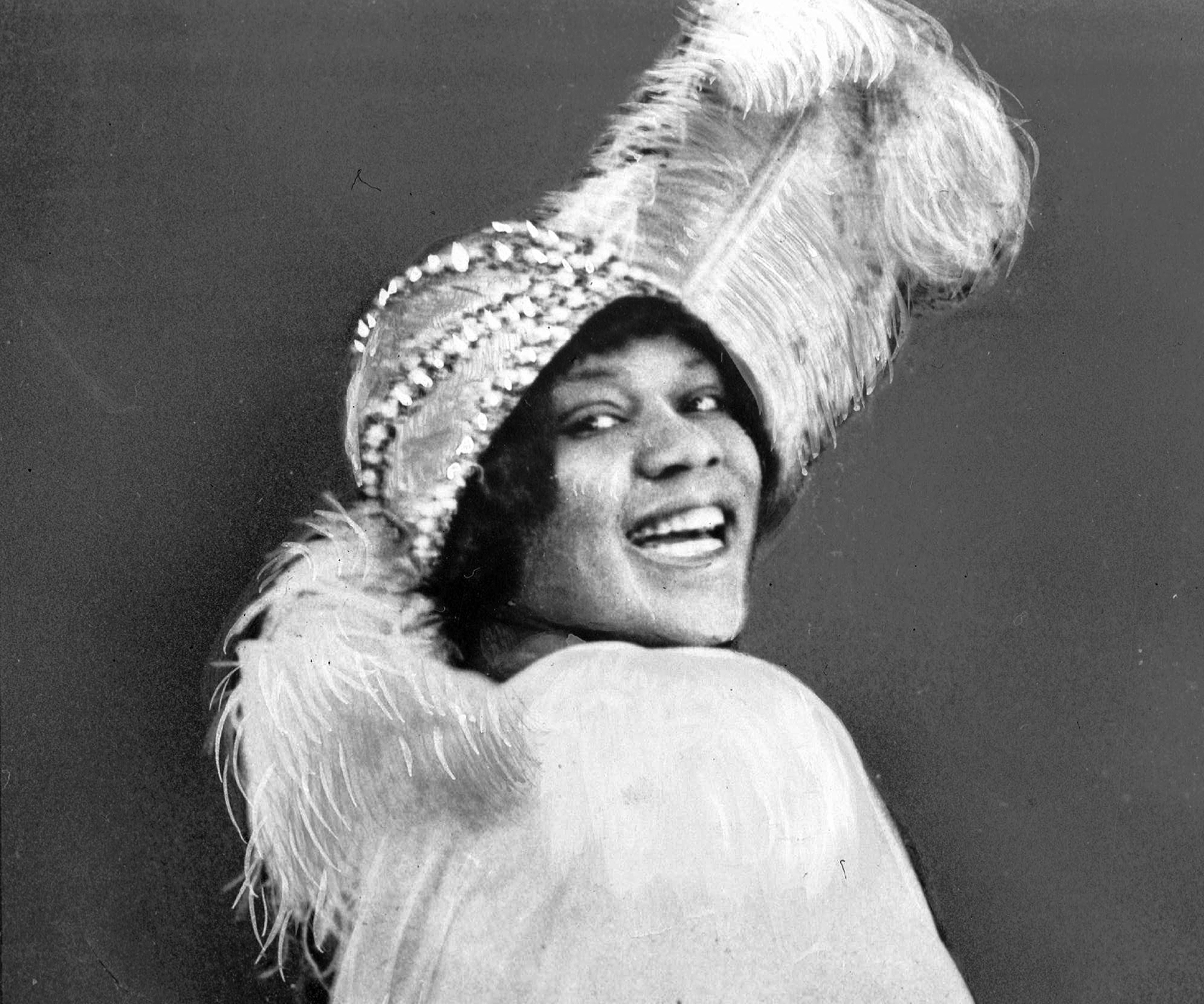Read more
Queen Latifah inhabits blues legend in HBO biopic 'Bessie'
To watch
* What: "Bessie," a biopic on Chattanooga's Bessie Smith * When: 8 p.m. Saturday * Where: HBO; EPB Channel 500; Comcast Channel 301 * Information: hbo.com/movies/bessie#
When Neshawn Calloway moved to Chattanooga in 1994, the name Bessie Smith didn't ring any bells.
"I had no idea who she was," says Calloway, a singer and the choir director at the Chattanooga Center for Creative Arts.
But while earning a master's degree in music education at the University of Tennessee at Chattanooga, she took an internship at what was then the Bessie Smith Performance Hall and is now the Bessie Smith Cultural Center. One of her jobs was doing research on the hall's namesake, and that's when her love of Smith took hold.
"Her voice is very distinctive, very raw, very real; there's nothing sugarcoated about it," Calloway says. "She's putting it out there."
In her own performances, Calloway often sings a few Smith songs and also has created a full-on tribute show to Smith, who was born in Chattanooga in 1894. And on Thursday, May 21, she'll be in the audience at the sold-out screening of the biopic "Bessie," an event presented at the Tivoli Theatre by the Chattanooga Office of Multicultural Affairs. The film premieres Saturday on HBO and stars Queen Latifah as Smith.
"When we found out about the premiere, we immediately started reaching out to HBO to pull together a screening to celebrate her contribution not only to Chattanooga but also to the world," says James McKissic, director of the Office of Multicultural Affairs.
Officials with Jazzanooga, the Bessie Smith Cultural Center and BlueCross BlueShield of Tennessee also were involved with setting up the screening, he says.
Chattanooga jazz musician Booker T. Scruggs hopes "Bessie" examines "the life, the struggles, the challenges that Bessie Smith had to overcome to do what she did."
"She sang from the gut, not necessarily from the heart, as a blues singer coming out of hard times and all that she had gone through," says Scruggs, who plays clarinet and saxophone.
And she went through a lot.
Bessie's parents were both dead by the time she was 9, and she and her four siblings were raised by their older sister Viola, a strict disciplinarian. The film shows Viola chasing Bessie with a knife and, in another scene, Bessie cries for her dead mother while trying to get into a refrigerator padlocked by Viola.
But Bessie found a way out. She started singing as a child, working for change with her brother, Andrew, on the sidewalks of East Ninth Street, also known as The Big Nine, and for decades the home to street performers and clubs filled with jazz and R&B. She left Chattanooga in her late teens, initially working as a dancer in the Moses Stokes minstrel show, which featured vocalist Gertrude "Ma" Rainey, who took Smith under wing. Smith's recording career began in 1923 after she had moved to Philadelphia.
Her first record, "Downhearted Blues," and its B-side, "Gulf Coast Blues," sold more than 800,000 copies, launching her career. In the space of six years, she had 15 Top 20 hits, including "Taint Nobody's Biz-ness If I Do," "The St. Louis Blues" (recorded with Louis Armstrong), "Baby Won't You Please Come Home" and "Nobody Knows You When You're Down and Out." At one point, she was the highest-paid black entertainer in America. She appeared on Broadway (though the play, "Pansy," was a flop) and also in the 1929 film "St. Louis Blues."
Calloway hopes "Bessie" has a segment on "St. Louis Blues" because it was a major triumph for Smith, who almost wasn't cast in the film although she had a hit with the song in 1925. Hollywood executives thought she was "too African, too dark, her hair was too short; she didn't look like the Hollywood actresses of the time," Calloway explains.
But Smith's high times were short-lived, crushed by the Great Depression in 1929, which almost destroyed the recording industry. Although she continued performing until her death in 1937 from injuries suffered in a car wreck, she never again achieved the level of success she enjoyed in the 1920s. Her last recording was in 1933.
Chris Albertson, who wrote what many consider the definitive biography on Smith, 1971's "Bessie," said in the book that "Bessie had a wonderful way of turning adversity into triumph, and many of her songs are the tales of liberated women."
"I think almost every song was autobiographical," he told Jerry Jazz Magazine in 2003. "Honesty was a strength of hers, and it was one of the first things that grabbed me about her. She wasn't just rendering words, she obviously put some feeling into them. When Bessie sang about a broken love affair, she certainly could relate to that, and the audience could sense that she wasn't just singing them another song.
"No one had that voice. It wasn't just a commanding voice, she also had a commanding presence. There are some artists who don't have to do anything other than walk out on stage to create electricity in the air, and Bessie was one of them."
Contact Shawn Ryan at sryan@timesfreepress.com or 423-757-6327.

